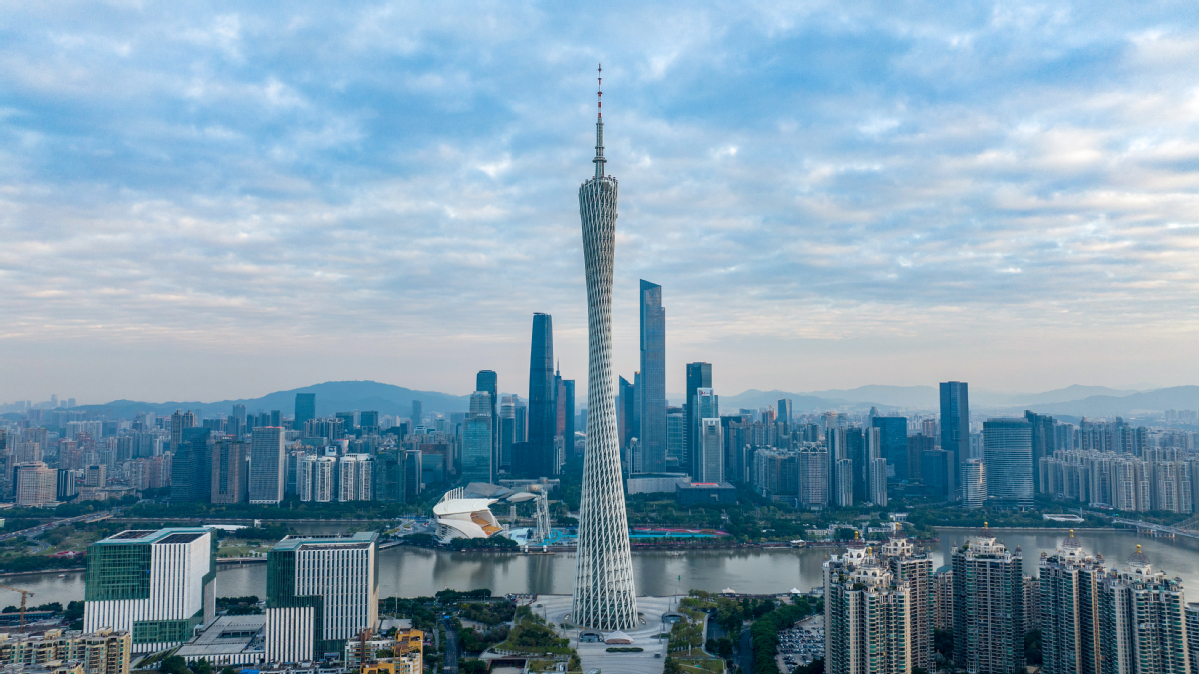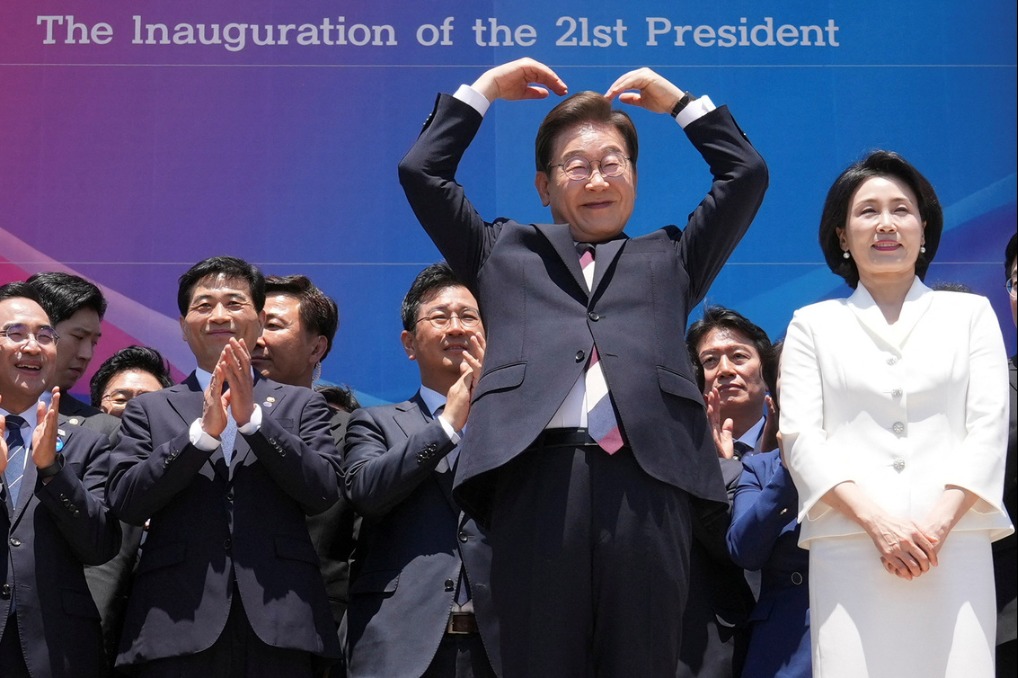Digital economy drives Chinese modernization


As the global economy undergoes profound transformations, the digital economy stands out as a game-changer. With its capacity for innovation, deep penetration and wide-reaching impact, the digital economy is not just reshaping industries but also altering the global competition landscape, and becoming the key driver of Chinese modernization.
Among the front-runners of this transformation is Guangdong province, a core engine of China's digital economy. In 2023, Guangdong's digital economy was worth an impressive 6.9 trillion yuan ($959.93 billion), securing its leading position in the country for the eighth consecutive year. Leveraging its strong manufacturing foundation and global platforms for open exchange, Guangdong is charting a path that not only fuels Chinese modernization but also sets an example of how the digital economy can empower industries at all levels.
One of Guangdong's most significant achievements is its ability to facilitate the integration of the digital economy with the real economy, forging a path toward high-quality, sustainable growth. The province is continually optimizing its industrial structure, not just by developing digital infrastructure but also by investing in the industries that depend on it. By October 2024, Guangdong had established 392,000 5G base stations, leading the country in the number of 5G users and industry virtual private networks. This vast digital infrastructure has laid the groundwork for everything, from industrial upgrading to smarter supply chains.
Guangdong's digital transformation has spurred breakthroughs in critical technologies such as computer vision, virtual reality and intelligent robotics. Industry giants such as Huawei, Tencent and DJI are now at the forefront of this wave, setting new standards in digital industrialization. Also, Guangdong's focus on fostering smaller businesses has led to tangible, positive outcomes. For instance, Midea's Meiqing industrial internet platform is revolutionizing the home appliance sector by enabling real-time monitoring of production, logistics and market trends. Today, Meiqing serves industries ranging from automotive parts to agriculture, connecting more than 4 million industrial devices and supporting nearly 600,000 enterprises.
Over the past five years, Guangdong has facilitated the digital transformation of more than 30,000 large enterprises, with over 750,000 small and medium-sized businesses now offering cloud-based services.
Digital governance is another pillar of Guangdong's model, improving government services and encouraging people to participate in decision-making. The digital economy has expanded the ways in which people engage with governments at different levels through digital platforms. By using big data analytics and real-time feedback systems, the province has made governance more transparent and responsive. The launch of the digital platform allows Guangdong officials to access critical economic, budgetary and State-owned asset data, strengthening oversight.
As the economic driver of the Guangdong-Hong Kong-Macao Greater Bay Area, Guangdong has enabled cross-regional cooperation in digital governance. By leveraging platforms such as the "Yue" economic system, the province is facilitating real-time data sharing across different regions, improving the government's ability to address social needs and improving governance across the Greater Bay Area.
Guangdong's digital economy is not limited to industry and governance — it is also reshaping cultural expressions. Traditionally, geographical barriers limited people's access to cultural resources, but the digital economy has opened up new possibilities for wide-reaching cultural exchanges. Virtual reality, immersive technologies and digital platforms have created new channels for cultural engagement, razing old barriers and expanding access to diverse forms of cultural expression.
The "Yue Du Tong" program (Guangdong's unique online reading platform), for example, allows users to access libraries across the province with just one card, offering a seamless digital experience for cultural enrichment. Private companies, too, are adapting to the transformation, using 5G and VR technologies to create interactive cultural experiences. Some businesses have integrated the province's rich cultural heritage, including performing arts, historical relics, and revolutionary history, into immersive VR experiences that allow people to explore everything from theaters to museums — anytime, anywhere.
Guangdong has also shown how digital technologies can drive rural development and bridge the urban-rural gap. The province has piloted innovative projects in rural areas, promoting digital tools to improve productivity and connectivity. For instance, Jieyang city has partnered with China Unicom to digitalize agricultural processes based on local strengths in industries such as green plums, tea and live pigs, creating an integrated monitoring system that tracks everything, from production to sales, boosting efficiency and reducing risks.
As part of its broader modernization strategy, Guangdong is integrating green technologies with its digital infrastructure, while investing heavily in smart environmental monitoring systems, using 5G, drones and digital twins to monitor the health of the environment and track pollution in real time.
On the other hand, Guangdong-based businesses are adopting digital technologies to reduce energy consumption and carbon emissions. For example, the digital energy conservation and carbon reduction industry alliance, formed by Guangdong-based enterprises, is promoting the green transformation of production through digital means, with alliance vice-chair Zhishu Capital developing a digital energy platform, "i380V", to monitor and analyze energy use in equipment, systems and organizations, offering energy-saving solutions.
Guangdong has shown how the digital economy can serve as a catalyst for Chinese modernization. As the province continues to lead the way, its model offers valuable experiences for the rest of the country — and indeed the world — on how to harness the digital economy for sustainable, inclusive development.
Zeng Yan is a professor at Lingnan College, Sun Yat-sen University.
The views don't necessarily reflect those of China Daily.
If you have a specific expertise, or would like to share your thought about our stories, then send us your writings at opinion@chinadaily.com.cn, and comment@chinadaily.com.cn.



































